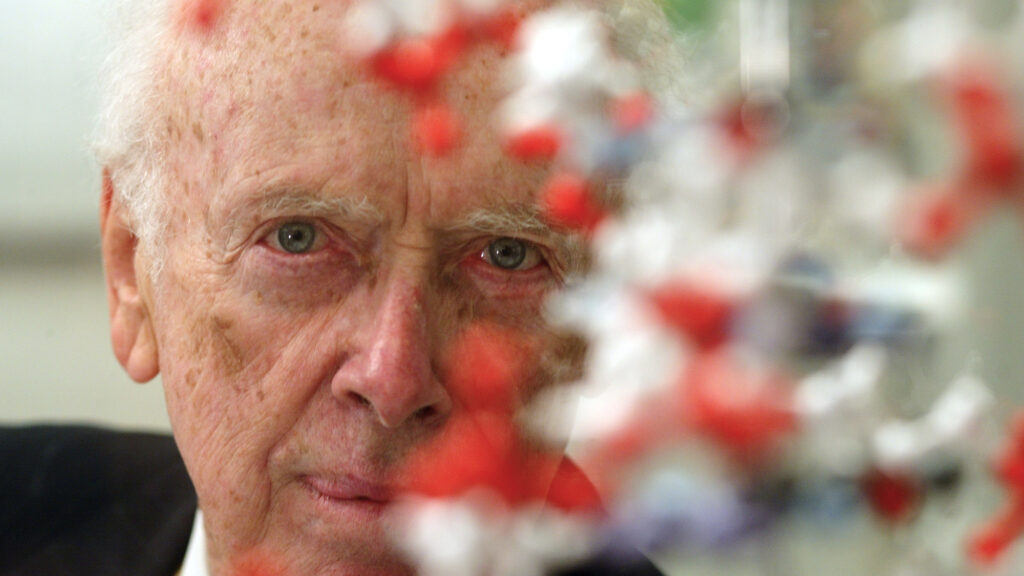Biologist James Watson, renowned for his groundbreaking work in genetics, passed away on October 19, 2023, at the age of 97. His death marks a significant moment in the history of biology, closing a chapter defined by remarkable discoveries and deeply contentious views. Watson, alongside Francis Crick, famously uncovered the structure of DNA in 1953, a revelation that has been described as “the eighth day of creation” due to its profound implications for science and medicine.
Watson’s contributions to biology extend beyond the double helix discovery. He played a pivotal role in transforming Cold Spring Harbor Laboratory into a leading research institution from 1968 until his retirement in 2007. He also served as the first director of the Human Genome Project, which aimed to map the entire human genome, a project that initially faced skepticism from many in the scientific community.
Despite his scientific accolades, Watson’s legacy is marred by his controversial views on race and intelligence. His remarks in a 2007 interview with a British newspaper, where he expressed pessimism about the prospects of Africa based on perceived differences in intelligence, ignited widespread condemnation. He claimed that intelligence among different races could not be assumed to be equal, a statement that led to his ostracism in the scientific community.
Legacy and Controversy
Watson’s later years were characterized by an unrepentant stance on his views regarding race and gender. He reiterated similar sentiments in his 2007 memoir, “Avoid Boring People: Lessons from a Life in Science,” where he suggested that historical differences in intellectual capacities could be attributed to evolutionary factors. His comments about women in science further fueled the backlash against him, as he questioned the role of nature in the gender imbalance within scientific fields.
The fallout from his statements was immediate and severe. Prestigious institutions, including museums and universities, revoked invitations for him to speak, and Cold Spring Harbor Laboratory eventually severed ties with him entirely in response to his “unsubstantiated and reckless” remarks. This shift from celebrated scientist to social pariah left many friends and colleagues puzzled, particularly those who once admired his groundbreaking work.
Biologist Nancy Hopkins of the Massachusetts Institute of Technology, who had a long-standing friendship with Watson, expressed her bewilderment at his transformation. She recalled how he had once supported her in her academic pursuits during a time when very few men advocated for women in science. However, after she criticized Lawrence Summers, the former Harvard president, for his claims about women’s capabilities in science, Watson’s demeanor shifted, leading to a rift in their relationship.
A Complex Figure in Science
Watson’s belief in his own genius and the approach that led to his early success often overshadowed his later failures. His discovery of the double helix at the age of 25 set a high bar that he struggled to meet in subsequent years. Critics, including Ernst Mayr, an influential evolutionary biologist, noted that while Watson had a significant breakthrough, he failed to replicate that level of success in later research endeavors.
In the 1990s, Watson’s fascination with the controversial book “The Bell Curve,” which advocated for a genetic basis for intelligence, further entrenched his contentious views. Despite the book’s discredited claims, Watson embraced its arguments, dismissing criticisms from his peers and insisting on the validity of his beliefs. This unwavering stance alienated him further from the scientific community.
Friends and colleagues noted a shift in Watson’s mentality as he faced increasing criticism. The isolation and loss of prestige he experienced in his later years fueled a resentment that manifested in even more extreme statements. The once-celebrated scientist appeared to revel in the controversy, using it as a means to reclaim attention and assert his intellectual dominance in a landscape that had turned against him.
As Watson’s life drew to a close, he remained adamant about his views, expressing no regret for his past statements. In a 2019 interview, he acknowledged that he had not changed his opinions on race and intelligence, a stance that solidified his controversial legacy. Despite his monumental contributions to science, Watson’s narrative serves as a cautionary tale about the intersection of scientific achievement and social responsibility.
Watson’s passing leaves behind a complex legacy, one that will continue to evoke discussion and debate within both scientific and public discourse. The history of his work, intertwined with his contentious beliefs, ensures that he will be remembered not only as a pioneer in biology but also as a figure whose views challenged the very principles of equity and inclusion in science.






































































